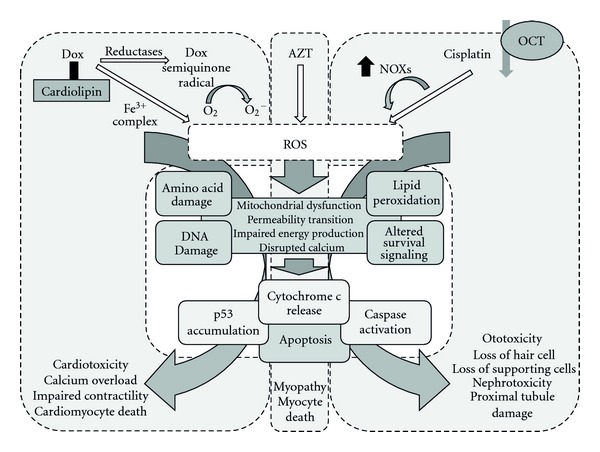Figure 3.

Molecular and cellular events by which oxidative stress in response to Dox, AZT, and cisplatin may result in toxicity. Dox, AZT, and cisplatin accumulation in cells may result in elevations in intracellular ROS. Dox may accumulate in cardiac cells by association with cardiolipin and generate ROS via reduction of molecular oxygen by the semiquinone free radical or by an iron II-Dox radical. Cisplatin may be transported into cells via the OCT transporters (e.g., in renal tubule cells) and elevate ROS levels via induction of NOXs. At the molecular level, ROS damage amino acids, lipid, and DNA. Mitochondrial dysfunction and associated alterations in energetics, together with effects on survival/apoptotic signaling cascades may lead to a proapoptotic response. These common mechanisms may be key to Dox-dependent cardiotoxicity, AZT-dependent skeletal myopathy, and cisplatin-dependent nephrotoxicity and ototoxicity described further in Section 3.
